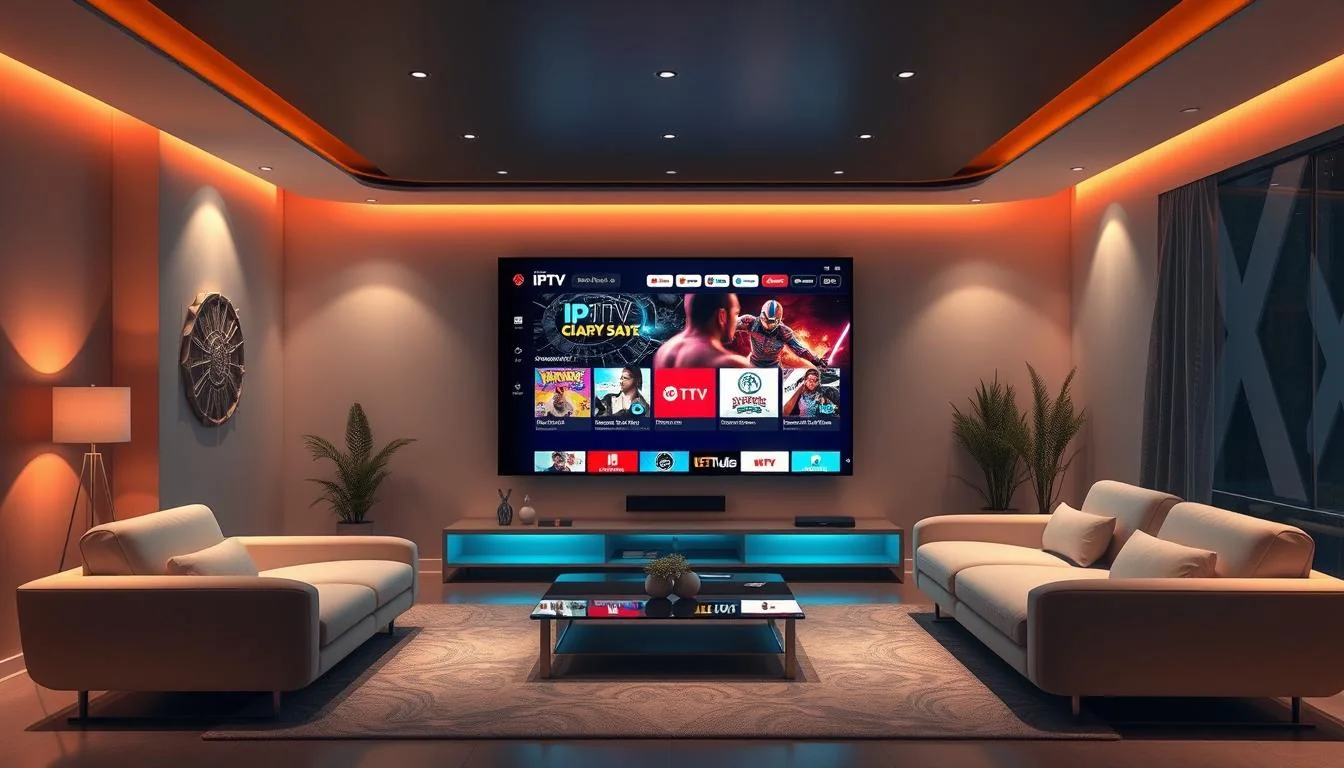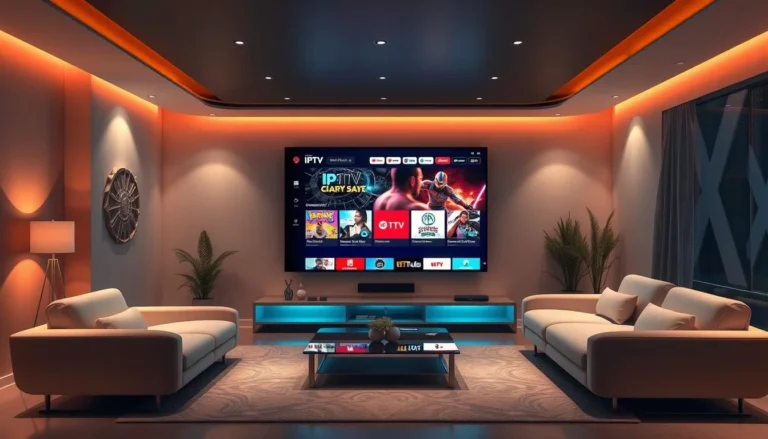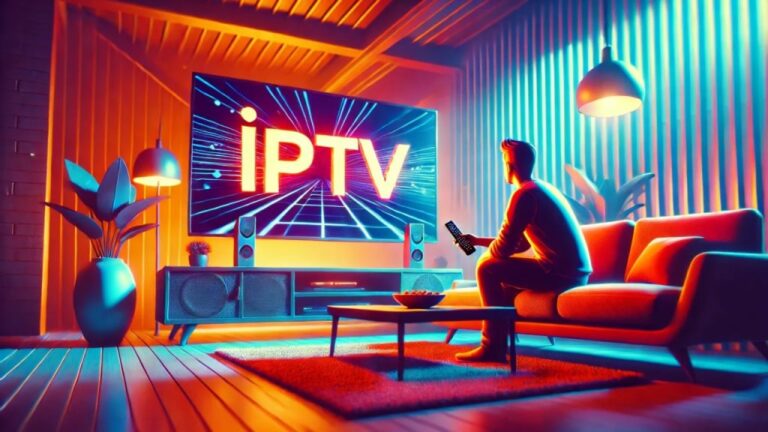Post Contents
As technology continues to evolve, the way we consume media is undergoing a seismic shift. One of the most significant changes in the entertainment landscape in recent years has been the rapid rise of IPTV with 4K. IPTV, or Internet Protocol Television, has quickly become the preferred method for streaming television content, largely due to its flexibility, affordability, and ability to deliver high-quality content. When combined with 4K resolution, IPTV promises an even more immersive and engaging viewing experience, one that is shaping the future of home entertainment in profound ways.
In this article, we will explore the various factors contributing to the rise of IPTV with 4K, including the increasing trend of cord-cutting, the expansion of 5G and fiber optic networks, the growing demand for 4K-capable devices, and the future possibilities of IPTV with 4K, such as virtual reality (VR) and augmented reality (AR) integration, as well as AI-driven content recommendations. Along the way, we will examine how these advancements are influencing content creation and the entertainment industry at large. By the end of this exploration, you’ll have a comprehensive understanding of how IPTV with 4K is revolutionizing the way we watch television, and why it will be the cornerstone of home entertainment for years to come.
The Rise of Cord-Cutting and IPTV with 4K

For decades, cable and satellite television were the dominant ways to access television content. But over the past few years, there has been a noticeable shift. More and more consumers are opting to “cut the cord”—meaning they are canceling their traditional cable or satellite TV subscriptions in favor of alternative options, such as IPTV with 4K. According to recent surveys, nearly 40% of American households have abandoned traditional pay-TV services in favor of streaming platforms, and this trend is only expected to grow.
The appeal of IPTV with 4K is clear: it offers flexibility, affordability, and a much more personalized viewing experience. Instead of being locked into a rigid cable subscription with fixed channels and limited on-demand content, IPTV allows viewers to select from a vast array of channels and services, all accessible through the internet. Moreover, the 4K resolution provides an unparalleled level of detail and clarity that traditional cable and satellite providers simply can’t match.
As consumers continue to embrace IPTV, they are demanding higher-quality content. With the proliferation of ultra-high-definition (UHD) televisions and devices capable of supporting 4K resolution, there is a growing expectation for content providers to deliver 4K programming. IPTV platforms, which can deliver video content over the internet, are uniquely positioned to meet this demand. In fact, many IPTV services are already offering a significant amount of 4K content, from live sports and movies to original programming and documentaries.
As the popularity of IPTV with 4K grows, more providers are entering the market, each vying for consumer attention with competitive pricing, expansive content libraries, and advanced features. This is driving innovation across the entertainment sector and pushing the boundaries of what is possible in terms of content delivery and viewing experiences.
The Role of 5G and Fiber Optic Networks in Enhancing IPTV with 4K
One of the biggest challenges to streaming high-quality content, such as 4K video, has always been the need for a fast and stable internet connection. Traditional broadband connections, particularly in rural or underserved areas, can struggle to deliver the necessary bandwidth for seamless 4K streaming. However, this is changing rapidly with the expansion of 5G and fiber optic networks.
5G networks, the next generation of mobile connectivity, promise to offer significantly faster speeds and lower latency than current 4G networks. This is a game-changer for IPTV with 4K, as it will enable mobile users and consumers in areas with limited broadband access to stream high-definition video without interruption. In fact, 5G’s high-speed capabilities could make 4K streaming possible even in remote locations where traditional cable or satellite services are unavailable.
Similarly, the growing deployment of fiber optic networks is providing consumers with faster and more reliable internet connections, especially in urban and suburban areas. Fiber optic technology uses light to transmit data, which allows for much higher speeds and greater bandwidth compared to traditional copper cables. With fiber-optic connections, IPTV providers can deliver 4K content with minimal buffering, offering viewers a smooth and seamless experience.
Together, 5G and fiber optic networks are transforming the way IPTV with 4K is experienced. The increased bandwidth and faster speeds make it possible for more people to enjoy 4K streaming, without the frustration of lag or low-quality visuals. This enhanced accessibility is opening up IPTV with 4K to a broader audience, ensuring that high-definition entertainment is no longer restricted by geographic or infrastructural limitations.
The Growing Demand for Smart TVs and Internet-Enabled Devices
In addition to advancements in network infrastructure, the rise of smart TVs and internet-enabled devices is driving the demand for IPTV with 4K. Smart TVs, which allow users to access streaming services directly through their television sets without the need for a set-top box or additional hardware, have become increasingly popular in recent years. According to market research, nearly 50% of global television shipments in 2023 were smart TVs, and this number is expected to grow.
These devices are often equipped with 4K resolution, making them ideal for IPTV with 4K streaming. As more consumers purchase 4K-capable smart TVs, the demand for 4K content continues to increase. IPTV providers are responding to this demand by offering a growing library of 4K programming, from movies and TV shows to live sports and events. The more accessible and affordable 4K-capable devices become, the more viewers will expect IPTV services to deliver content in this ultra-high-definition format.
In addition to smart TVs, other internet-enabled devices, such as streaming boxes, gaming consoles, and even smartphones, are also supporting 4K resolution. This means that consumers are no longer limited to watching IPTV content on their television screens; they can enjoy high-quality 4K content on a variety of devices, wherever they are.
This growing demand for 4K-capable devices is not only pushing IPTV providers to offer more 4K content, but it is also influencing content creators and broadcasters. Filmmakers and TV producers are increasingly focusing on producing content that is optimized for 4K streaming, knowing that a large portion of their audience will be viewing it on 4K-capable devices. As a result, we are likely to see even more visually stunning and immersive content in the years to come.
Future Possibilities: Integrating VR, AR, and AI with IPTV with 4K

As we look to the future of IPTV with 4K, the possibilities are truly exciting. One of the most promising developments is the integration of virtual reality (VR) and augmented reality (AR) with IPTV services. VR and AR technologies have already begun to revolutionize industries such as gaming and education, and they have the potential to do the same for entertainment.
Imagine being able to step into a 4K movie or TV show, not just watching it on a screen but interacting with the environment and characters in real time. With the right equipment and software, IPTV with 4K could offer truly immersive experiences, allowing viewers to explore new worlds and narratives in ways that were previously unimaginable. While we are still in the early stages of VR and AR integration, the combination of these technologies with IPTV could completely transform the way we consume entertainment.
Another exciting possibility is the use of artificial intelligence (AI) to enhance the IPTV experience. AI-driven content recommendations are already becoming more sophisticated, helping viewers discover new shows and movies based on their viewing history and preferences. In the future, AI could play an even more significant role in personalizing the IPTV experience, offering tailored suggestions for 4K content, optimizing video quality based on the viewer’s internet connection, and even predicting when and what type of content a user will want to watch next.
Furthermore, as content creators continue to optimize their productions for 4K resolution, we may see a shift in the way content is created. Filmmakers and broadcasters are already beginning to think about the specific needs of IPTV with 4K platforms when producing their content, ensuring that their work looks its best on high-definition screens. As technology advances, we may see even more innovation in the types of content being created—perhaps more interactive shows, documentaries, and films designed specifically for the capabilities of IPTV with 4K.
Conclusion: The Future of IPTV with 4K
The future of IPTV with 4K is incredibly promising, offering consumers more flexibility, higher-quality content, and immersive experiences than ever before. As more people cut the cord and turn to IPTV solutions, the increasing availability of 5G and fiber optic networks will make 4K streaming more accessible and reliable. With the growing demand for 4K-capable devices and content, the entertainment industry is already adapting to this new paradigm, optimizing content for high-definition platforms.
Looking ahead, the potential for IPTV with 4K to integrate with emerging technologies such as VR, AR, and AI opens up even more exciting possibilities. As these technologies mature, IPTV with 4K could revolutionize not just the way we watch TV, but the way we experience entertainment altogether. Whether it’s stepping into a 4K virtual world, getting personalized content recommendations, or enjoying ultra-high-definition content on a wide variety of devices, the future of IPTV with 4K is filled with potential.
In the coming years, IPTV with 4K will undoubtedly become an integral part of the entertainment ecosystem, offering an experience that is more customizable, more engaging, and more immersive than anything we’ve seen before. Whether you’re a film lover, a sports fan, or a casual viewer, the future of IPTV with 4K promises to deliver entertainment that is more vivid, dynamic, and exciting than ever.
4o











